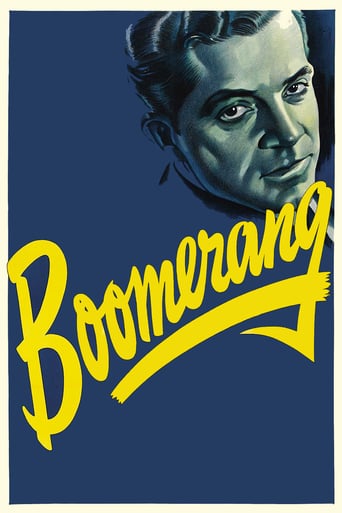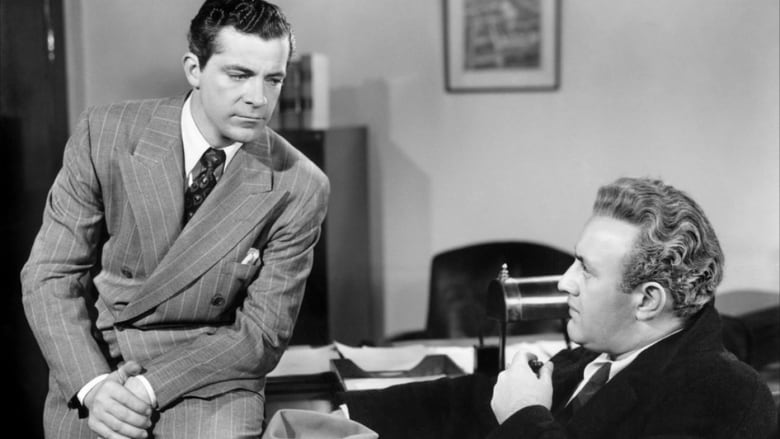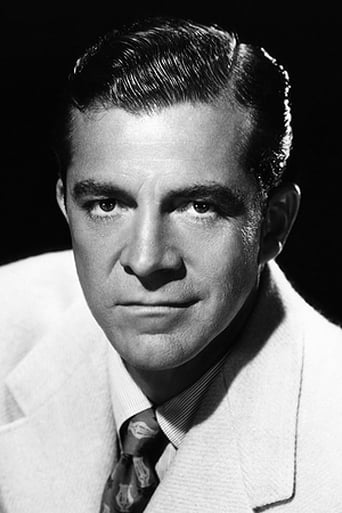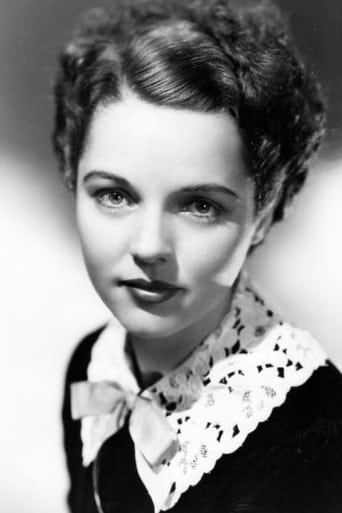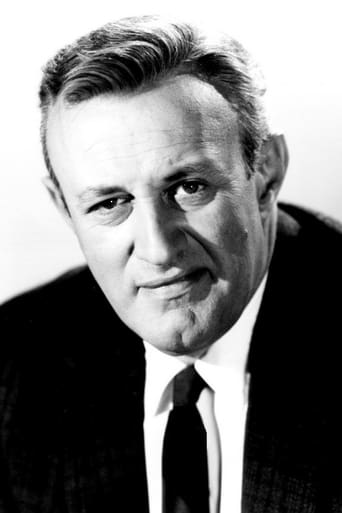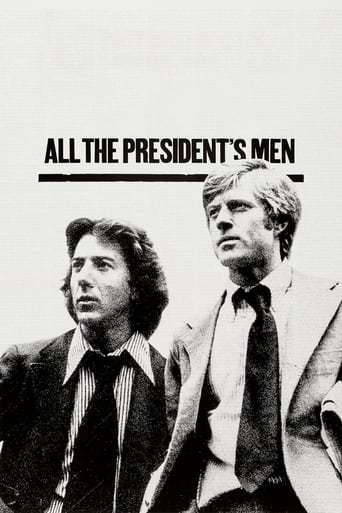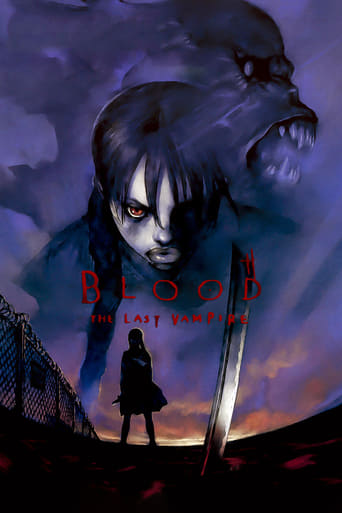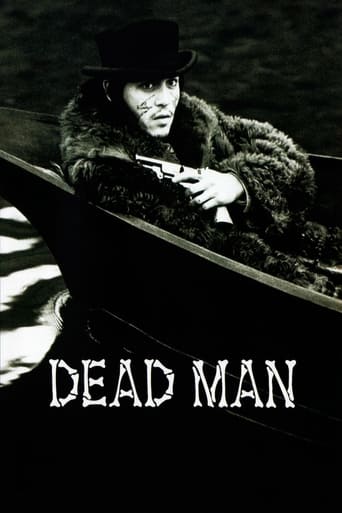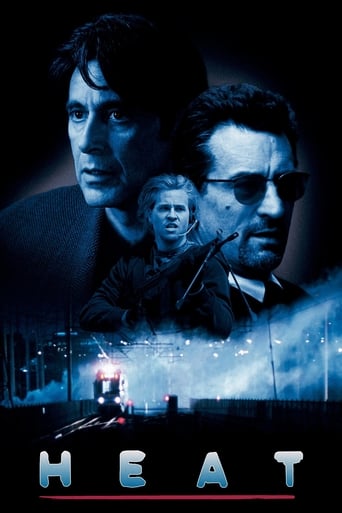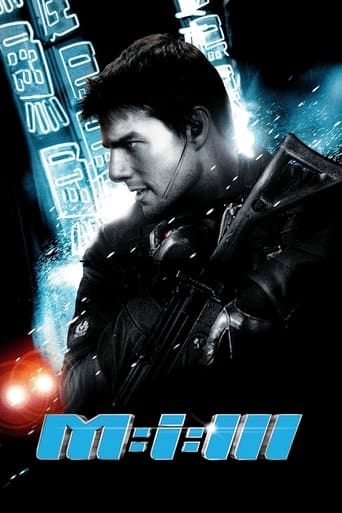Boomerang! (1947)
In a quiet Connecticut town, a kindly priest is murdered while waiting at a street corner. The citizens are horrified and demand action from the police. All of the witnesses identify John Waldron, a nervous out-of-towner, as the killer. Although Waldron vehemently denies the crime, no one will believe him. District Attorney Henry Harvey is then put on the case and faces political opposition in his attempt to prove Waldron's innocence. Based on a true story.
Watch Trailer
Cast


Similar titles
Reviews
Absolutely Fantastic
This is a coming of age storyline that you've seen in one form or another for decades. It takes a truly unique voice to make yet another one worth watching.
All of these films share one commonality, that being a kind of emotional center that humanizes a cast of monsters.
This is one of the best movies I’ve seen in a very long time. You have to go and see this on the big screen.
A Closeup on one of the witnesses coke bottle glasses. Another closeup on the feeble old obviously insane bum as one of the culprits in the ridiculously eclectic police lineup. The expressions of the shunned waitress that screams "I'm lying and just seeking revenge." Scenes where townsfolk speak to each other which sound like a much too perfectly timed rehearsal. The politicians having a meeting while an idyllic putting green of a golf course sleeps in the background. Ed Begley pulling a gun, and thus making leading man Dana Andrews's role that much less mysterious and engrossing. Sam Levene, as usual, playing the perfectly wise "progressive" working man, who knows more than anyone with a wink, almost directed right at the audience. And a narrator that pours on the grim irony behind a pseudo-documentary template. Boomerang is extremely disappointing, especially since it's a movie starring Cult Film Freak Cinema's favorite actor, Dana Andrews, and directed by one of my favorite directors, Elia Kazan, who hadn't yet met Marlon Brando i.e hit his stride, and became more subtle, and implied.Idealistic is an understatement for this contrived Film Noir that's hardly a Film Noir. And that's the word to center on... The one connected to Under... Which is, Statement. This movie is not only making one, it's screaming like a wounded and abused banshee. This is why Dana's usual director, Otto Preminger, hit it outta the ballpark with his masterpiece Anatomy of a Murder, by having all the characters ambiguous, and, unlike Boomerang, remaining realistic without having heroes and villains. Such characters should never be anywhere near a Courtroom Drama.Anyhow: Dana Andrews did a good job and stayed tried and true despite starring in a movie that not only made up its mind from the start, but takes sides, one side... One-Sided, and beyond!
The title of this film is a bit of a mystery. There is no connection with Australia, and boomerangs are never seen, or even mentioned, during the film.In 1924 a priest named Hubert Dahme was shot dead on the streets of Bridgeport, Connecticut. There were no obvious suspects and no obvious motive for the crime; Father Dahme was a popular man with no known enemies. Eventually a vagrant named Harold Israel was arrested and charged with the murder. At first the case against Israel seemed a strong one, but he was eventually cleared through the efforts of a determined lawyer. Surprisingly, this was not his own defence counsel but the man tasked with prosecuting him, the Connecticut state's attorney, Homer Cummings, who later became United States Attorney- General under the Roosevelt administration. Cummings became convinced that the police evidence was unsatisfactory and persuaded the Court to discount it. Israel was acquitted; the true murderer was never found.The film is a fictionalised version of this true-life murder case. The action is updated from the twenties to the forties. Names are changed; the murdered priest becomes "Father George Lambert", the accused man "John Waldron" and the state's attorney "Henry Harvey". The local authorities in Bridgeport, who may still have had a guilty conscience about the way Israel had been treated, refused permission to film there, so the film was actually shot in neighbouring Stamford. As in the real- life case the crime is never officially solved, although the film strongly implies who the real killer is. "Boomerang!" has a lot in common with the James Stewart film "Call Northside 777", another crime drama from the following year. Both films are based on a true story from the twenties or thirties, and both deal with a fight to clear men wrongly accused of murder. In "Call Northside 777" the two men have already been convicted and are serving a sentence in jail; here the defendant is on trial for his life. Both are made in a semi-documentary style, a mixture of documentary realism and film noir, and make use of voice-over. One actor, Lee J. Cobb, appears in both films. There is more to the film, however, than a documentary reconstruction of real-life events. There is also a strong political element. Political control of the town in which the action takes place has recently switched to a vigorous reforming administration, here referred to as the "Reform Party". After Father Lambert is killed, however, this new administration comes under attack from both press and public for the alleged incompetence of the police in failing to find the murderer. Harvey, therefore, comes under a lot of pressure from his political bosses who have a vested interest in ensuring that Waldron is convicted, and his reluctance to press the case is misinterpreted as stemming from support for the opposition faction in the town, who have an equally strong vested interest in ensuring that Waldron is acquitted. Those pressurising Harvey do so from a mixture of motives. At one end of the scale is the relatively decent Police Chief Harold Robinson (Cobb's character), who sincerely believes Waldron to be guilty. At the other end is Paul Harris, an obviously corrupt local councillor who does not care one way or the other about justice, but is desperate to see Waldron convicted because he fears than one of his corrupt schemes will miscarry should he be voted off the Town Council.I was interested in the film because it highlights obvious differences between the British and American (or at least Connecticut) justice systems. A prosecuting barrister in Britain could not drop a prosecution without the consent of those instructing him, generally the police or Crown Prosecution Service. Harvey, however, clearly has much more extensive powers, and mindful of the American lawyers' Code of Ethics, which stipulates that a prosecutor's main duty is not to obtain a conviction but to see that justice is done, he begins to subject the police evidence to independent scrutiny. One by one the key planks of the police case, which originally seems a solid one, begin to crumble. Waldron's confession is shown to have been obtained by oppression. Several eye-witnesses are shown to have been unclear or mistaken about what they saw; the one whose testimony seems firm is revealed to be an embittered ex-girlfriend with a grudge against Waldron. The ballistics evidence which seemed to show that the fatal bullet was fired from Waldron's gun proves to be unreliable.Dana Andrews was not always my favourite actor, especially when he ended up in substandard war dramas like "North Star" or "The Purple Heart", but he is good here as Harvey, an earlier version of Atticus Finch, a man who believes that lawyers must have a conscience and act with integrity, no matter what side of the law they may be on. He receives good support from Cobb as Robinson, a decent but limited man who cannot conceive that supposedly firm evidence can turn out to be flawed, and from Arthur Kennedy as Waldron, who shows that innocent men are not always nice ones, and unsympathetic men not always guilty. "Boomerang!" not just a documentary; it is also a solidly-crafted legal drama with a griping courtroom climax. 7/10
The picture was based on a case involving Homer S. Cummings, a former Mayor of Stamford, CT and one our greatest Attorney-Generals. He served under FDR in the 1930's and created a strong criminal justice arm of the Department of Justice. I saw the film more than 50 years ago and watched it again the other evening on Turner Classic movies. The cast is excellent and I had the distinct pleasure of meeting Dana Andrews when he visited Boston University in the mid 1960's. He was always a very serious actor and was wonderful in "The Best years of Our Lives," and "Laura."Richard J. Garfunkel Host of the Advocates WVOX 1460 am radio New Rochelle, NY
The movie is probably best known now for its heavyweight talent, from director Kazan through the stellar supporting cast that includes such heavy-hitters as Kennedy, Cobb, Begley and Malden. Even the one movie star, Andrews, rises to the drama's challenge. Of course, 10 years of Perry Mason courtroom theatrics has since made the storyline more familiar than I'm sure it was at the time.Nonetheless, old movie fans will recognize this TCF production as kicking off the docu- drama style of filmmaking, which immediately caught on with audiences, eventually working its way into such TV dramas as Dragnet and The Lineup. The producer De Rochemont was producer of the documentary March of Time series, so an experienced hand was brought in to fashion this pioneering production.The movie itself works well as a seamless whole, integrating cast and screenplay into the real life surroundings. The result, based on fact, drives home an important point about criminal justice: namely that such seemingly incorrigible evidence as eye-witness accounts and ballistics tests can nevertheless turn out to be in error. I also like the way the high-profile trial gets tangled up with politics, showing how justice in the real world is sometimes not uppermost. The one contrived note is the implied guilt of Crossman as the actual culprit, who nevertheless gets punished in a fatal accident (the religious might assume punished by God). I suppose the Production Code frowned on killers getting away unpunished, regardless of what happens in the real world. At the same time, director Kazan's usual theatrical brilliance is constrained here, no doubt by the demands of the docu-drama format. No, the film is not particularly memorable. But it does remain a solid piece of movie-making that also ushered in an important new style of crime drama.

